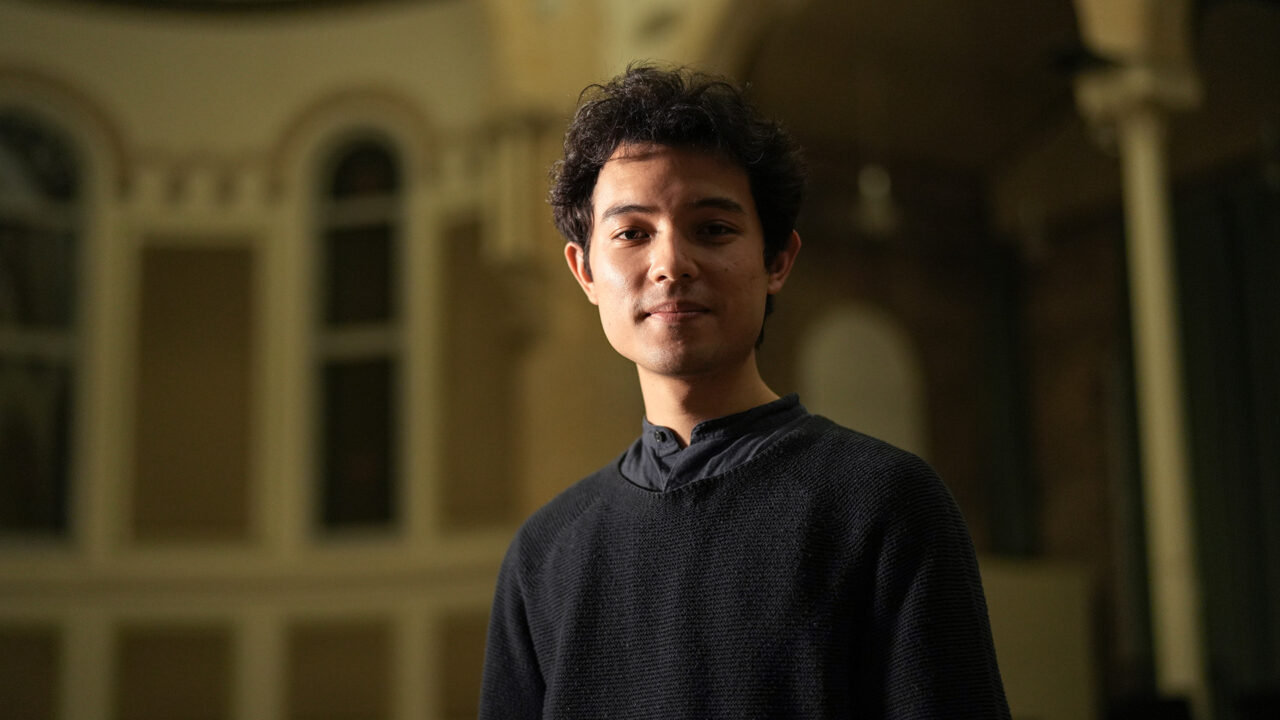Interview: Euan Shields, Assistant Conductor of the Halle and Musical Director of the Halle Youth Orchestra
As part of Japan Day at the Hallé, we spoke with Euan Shields about his international career, his connection to Manchester’s music scene, and the cultural richness behind the programme he will conduct. Born in Osaka and raised in Tokyo, Euan’s musical journey has taken him from Japan to the US and now to the UK, where he brings his unique perspective and passion for cross-cultural exchange to the stage.
You’ve worked with orchestras across Europe, Asia, and North America. What stands out to you about Manchester’s music scene, both in terms of its audiences and artistic community?
What strikes me most about Manchester is its openness, both in how audiences listen and in how artists support one another. There’s a real sense of curiosity and possibility. The city’s musical heritage stretches from the classical traditions of the Hallé to the boundary-breaking energy of the Haçienda era, yet it is never trapped by its own history. When I suggested organising a concert for Japan Week, everyone at the Hallé embraced it instantly. Manchester manages something rare: it has the vibrancy and scope of a major city, but also the intimacy of a community where connections happen naturally, and ideas have the space to grow.
What does it mean to you, personally, to be part of Japan Week in Manchester?
It’s deeply personal. I was born in Osaka, raised in Tokyo, and my musical education and career have unfolded in the US and UK. Japan Week feels like a point of convergence for all those journeys. For me, it’s also an act of gratitude to share part of my heritage with Manchester, a city that has welcomed me with such warmth and openness.
You’ll be conducting Yu Kuwabara’s Falling Leaves, Moon Steps as part of Japan Week. What drew you to this piece, and how do you approach interpreting contemporary Japanese music for a Manchester audience?
The process of rehearsing the Kuwabara with the Hallé Youth Orchestra has been particularly meaningful. It’s an incredibly challenging piece but watching the young musicians break through by understanding the cultural context and meaning behind the notes has filled me with joy and pride. I’m also deeply honoured to welcome Honjoh Hidejiro as shamisen soloist and Shozan Hasegawa as shakuhachi soloist, both leading artists in their fields. Yu Kuwabara herself will be present at rehearsals and performances during Japan Week, making it a wonderfully interactive and immersive experience for everyone involved.
What first drew me to Yu Kuwabara’s piece was its instrumentation, which resembles Toru Takemitsu’s November Steps, a work that has captivated me for many years. While Takemitsu blends the ancient court music of gagaku with the colours of French modernism, Kuwabara takes a deeper dive into the world of distinctly Japanese sounds, drawing her inspiration from Nō, a traditional Japanese theatre form that has been performed continuously since the 14th century.
As Japan modernises, there is an unspoken fear of losing the essence of what makes its cultural identity unique. One of Kuwabara’s missions is to preserve these authentically Japanese sounds by writing them in Western notation, ensuring they can be heard and understood around the world. The piece demands a different kind of listening, more meditative, requiring the audience to actively create meaning from abstract sounds. My role is to create a space where that listening can happen, so that each person in the hall can feel as though they are stepping into a sound world both ancient and alive.
The Hallé Japan Day performance promises to be one of the highlights of Japan Week in Manchester – a city-wide celebration of Japanese art, music, food, and culture. Under Euan Shields’ direction, the Hallé Youth Orchestra will bring Yu Kuwabara’s Falling Leaves, Moon Steps to life alongside world-class soloists, offering audiences a rare chance to hear traditional Japanese instruments in dialogue with a full symphony orchestra.
This event is part of a much broader tapestry of Japan Week activities, from cultural workshops and exhibitions to performances that bridge continents and generations. It’s a moment for Manchester to explore Japan’s deep traditions and contemporary creativity and for artists like Euan to create connections that resonate far beyond the concert hall.
Find out more about The Halle’s Japan Day performance here.
